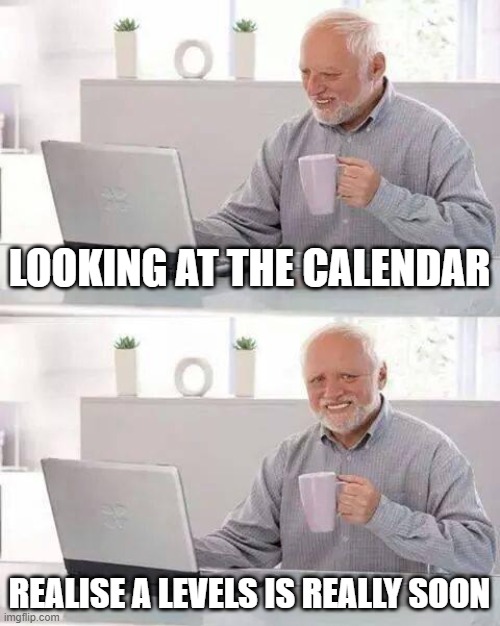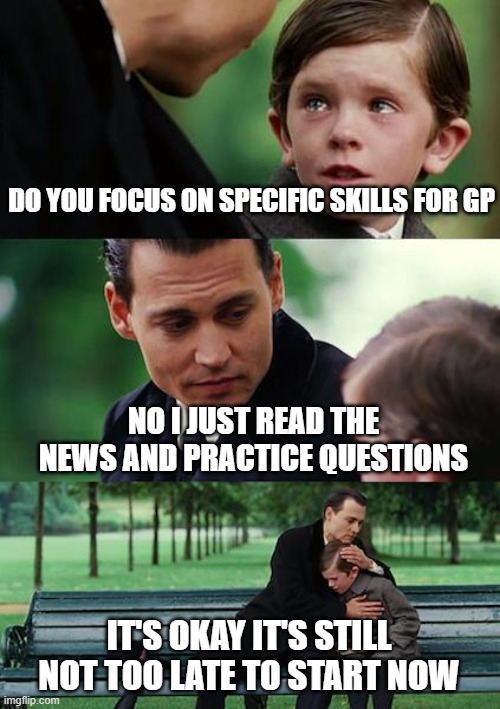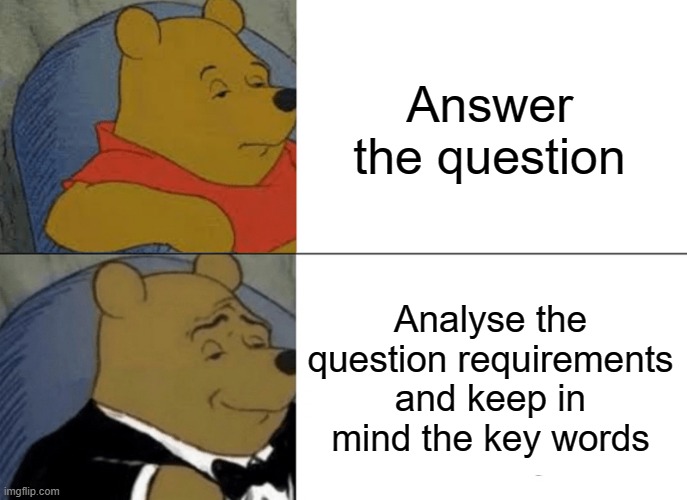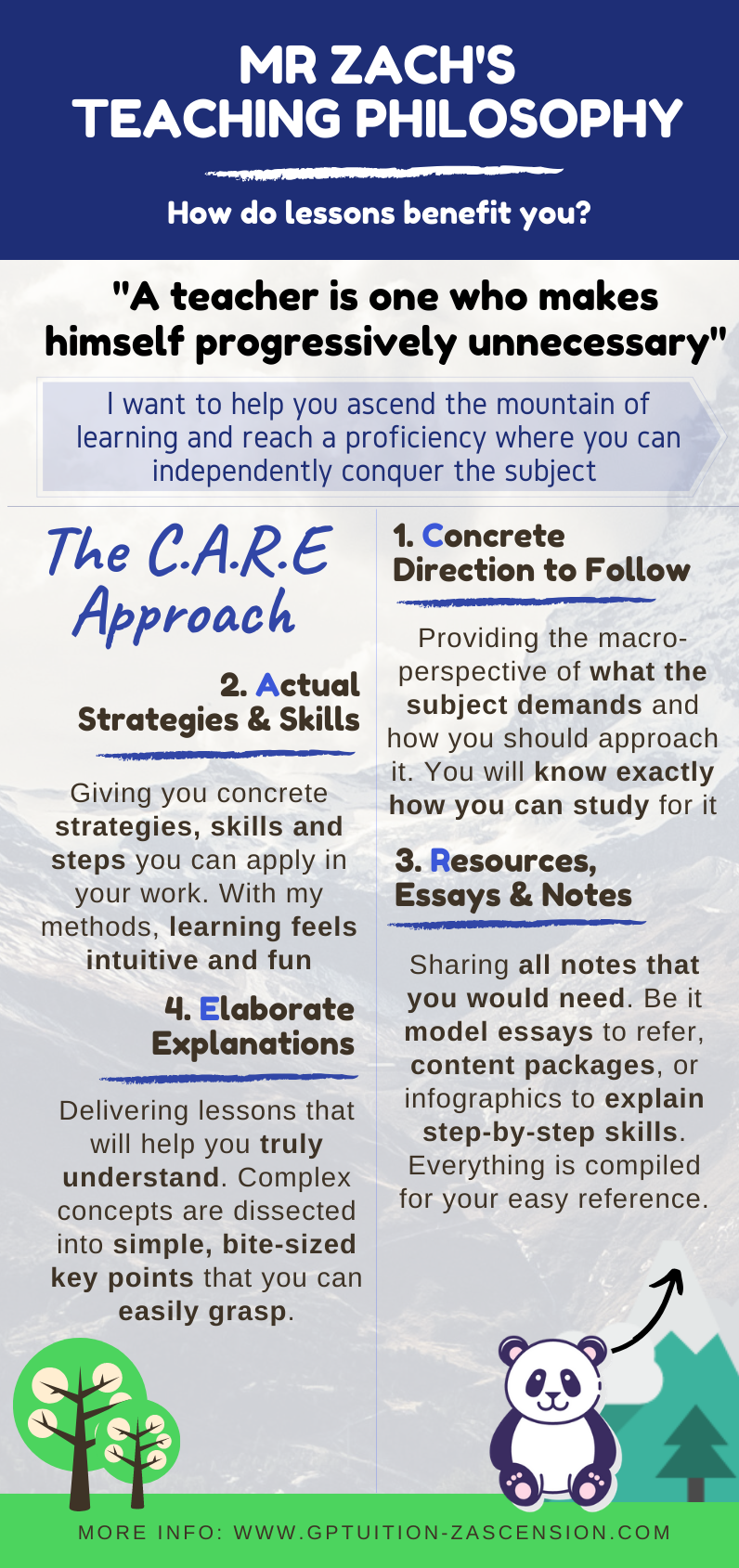Wait, who’s Mr Zach & what’s ZAscension? Click here to discover!
Before you start reading: Check out our new GP Tips & Resources Telegram Channel! Click here to join. This channel is meant to act as a GP companion to share knowledge and help all students, regardless of whether they are a part of ZAscension.
Everyday, there will be Tips of the Day, Answers to FAQs, Articles and many more. If you enjoy this article, this channel will definitely be useful for you 😃
Now, on to the actual content on Exam Tips:

A Levels is round the corner, but fret not! These are some exam strategies designed to help you conquer A Levels! The strategies that are shared in this article focus on GP, but they can also be used in other subjects.
Doing well in exams is not just pure hard work, it is also about studying smart and being strategic. Understanding the dimensions of exam preparation can give us a big advantage in aceing the exams and maximising the results of our efforts.
Here are 5 Exam Tips:
1. Attempt Past Year Questions
When I was a student, I found this to be one of the most helpful strategies that really helped me understand the specific demands of A Levels. What better way to prepare than trying questions that are similar to the ones in the actual exam? These questions can either be past year A Levels questions, or prelim questions. Prelim questions are helpful because the pool of questions become much larger and they often try to predict trends affecting the upcoming questions. Here is a list of compiled questions, specially organised into GP Themes!
1. The important question is: what should we do with these past year questions? The first thing to do is Categorisation. This is a simple but extremely effective step in helping us see the big picture of what question TYPES exist. This significantly boosts the efficiency of our preparation. Imagine there are 100 past year questions, categorising them means we potentially have to prepare for maybe 10 categories instead of 100 questions. Being able to recognise how questions are similar can also hone our critical thinking — in the exams, we will be able to also identify how the question given is similar to what we have studied.
2. The next step after Categorisation is aligning content to these various categories. This step creates a bridge between our content knowledge and the question demands, helping to turn content into answers. This is especially crucial for GP where content knowledge is extensive and wide-ranging. For instance, the content we have for the category/topic of Media is probably very different from what we have for Science and Tech. Be sure that we have specific content knowledge for the different categories. Thinking in terms of categories also gives us a organised way to approach GP content.
3. Finally, we have to attempt the questions. My recommendation for exam preparation is doing multiple essay plans. This is much more efficient than doing multiple essays because we can cover many more questions in the same duration. Doing a detailed essay plan with all the arguments and examples written in point form could take 20 minutes whereas a full essay takes 90 minutes. That being said, it is of course still valuable to do timed practices to get use to the rigour and time constraints of A Levels. Doing 3 essay plans in a day, means we cover 3 questions per day which translates to nearly 100 questions in a month. This strategy, combined with Categorisation, can mean that we are effectively exposed to ALL question types in just a month.
Pro Tip: Do essay plans to quickly cover a lot of ground in a short time, especially if A Levels is nearing.
2. Refresh Skills Needed
For any subject, mastering skills means knowing exactly HOW to perform well for the subject. Knowing skills turn exam performance from luck to skill and competency. This is especially relevant for GP considering that there are so many skills involved for both Essay and Compre.
1. What steps are there and what skills pertain to each step? Break the paper down into different components/steps, just like how we have broken content done in the above Tip. For Essay, they can range from: Question Analysis, Planning, Intro, Crafting Topic Sentence, Argumentation, Exemplification, Link, Rebuttals, Personal Voice. For Compre, they include: Passage Analysis, Passage Annotation, Analysing SAQ Question Types, SAQ Paraphrasing, Summary Identification of Points, Summary Paraphrasing, AQ Evaluation, AQ Contextualisation.
2. After knowing the skills, we have to remember the specific method involved in each skill and recall how they will be done during the paper. Imagine when you sit down for the paper, what is the first thing you will do? How will it be done? For example, would you first read the Compre passage or would you read the AQ? How will you read the Compre passage, what will you look out for? Or, would you first plan the intro or would you plan the arguments before the intro? How will you plan the intro, are there systematic steps?
3. Finally, we must also recognise the purpose of each skill. What is the skill supposed to help me achieve? Why do we annotate Compre passages, what will it achieve? Why do we think about the significance of examples before we write them, how will that make our examples more relevant to the question? In other words, know WHY you are engaging in the skill in order to reap the full benefits during the exam.
Pro Tip: Think about skills needed by first analysing what different steps are needed for the paper
3. Practice and Target Specific Areas

Given that there are so many skills, we should practice specific skills instead of simply trying to improve our results for the entire paper. Improvement becomes a lot more concrete when we confine it to specific small areas. Imagine if , for example, we want to improve public speaking, we would need to improve enunciation, hand gestures, intonation, coherence of ideas etc. It becomes much more manageable when we isolate and zoom in on individual skills.
Going back to the context of GP, if we wish to work on Essay, we should ask ourselves which areas of Essay/Compre we have issues with. Student A could struggle with linking ideas back to answer the question (ATQ) while Student B struggles more with coming up with relevant examples. These two students would therefore practice with a different focus in mind.
Doing repeated practices for ONE skill can engender quick and significant improvements compared to diluting our efforts across multiple areas. If Student A can identify that his/her issue lies with ATQ then Student A would be able to consciously remember this instead of being distracted by the many other demands of essay writing. In short, practices need to be targeted and focused to see real improvement.
Pro Tip: Get feedback on how you are faring for that skill in order to see what you can improve on. Ideally, get feedback for every practice you do
4. Plan out Exam Time Allocation
This is one of most underrated exam tips, but one of the most important. For subjects that have a very tight duration, it is necessary to consider exactly how we will allocate the time given to the different parts of the paper. We need to have a Mental Map of time allocation. Mental Map means being able to imagine how we will spend our time and considering the sequence of steps.
This is my recommended time allocation for Essays (in minutes):
Question Analysis: 5
Planning: 15
Intro: 5
Body Paragraphs (BP): 60
Conclusion: 5
60 minutes is a long time for writing BP. Assuming we have 5 BPs, that would give us 12 minutes for each BP. Let’s say a BP is about 250 words, that would be 12 minutes for 250 words which is very manageable, especially if we have a very clear and detailed outline laid out in our plan.
My recommended time allocation for Compre (in minutes):
Passage Analysis & Annotation: 15
SAQ: 25-30
Summary: 20
AQ: 25-30
My rationale for giving a significant bulk of the time to SAQ is because it has the most marks out of the 3 requirements. We often forget that SAQ is wroth 17 marks while Summary and AQ are 8 and 10 respectively. Passage analysis takes up significant time because we should annotate each paragraph to fully grasp the ideas.
Be sure to try out different variations in time allocation and see what works best for you. Different students have a different pace for different sections, so make sure you develop your own unique time allocation Mental Map before going into A Levels. This would also help us remain in control of our time instead of struggling to finish the paper. Once again, if we want to work on finishing the paper on time, it is far easier to break it down into different sections and consider which section to hasten rather than thinking about improving the speed of the entire paper.
Pro Tip: Develop your own time allocation Mental Map that works best for you, try different variations and see how you can adjust the timings
5. Actively Recall Question Requirements

Most of the Tips shared above relate to exam preparation before A Levels. Here I just want to share a useful Tip used during the exam. Ignoring/neglecting questions requirements is one of the most fatal errors, but unfortunately also one of the most common. This is very very important for GP especially in Essays because the question is simply one sentence. This means that misreading/misinterpreting just 1 key word can prove extremely damaging for the essay because it is the fine line between giving a correct response and a wrong one that is irrelevant.
Most students do take the time to identify questions requirements. But not many go on to REMEMBER the requirements. We should not pay attention to requirements only during the planning stage. We must actively recall the requirements throughout the entire essay writing. It must be at the back of our minds, like a compass that directs our answers and steers it back to ATQ.
In order to constantly ATQ, we have to constantly check our answers against the question requirements. For instance, the essay question looks at the ‘Effectiveness of social media in creating change’, we would need to cling onto the words ‘effectiveness’, ‘social media’, ‘change’. Some students would forget in the middle of writing and end up discussing the general impacts of social media, without linking to change. Other students could wrongly talk about different media platforms instead of looking at the specific context of social media. And others again could discuss effectiveness without considering change. As we can see here, there are multiple pitfalls that cause our answers to not ATQ.
To avoid that, we must constantly keep in mind these key words while we are writing. It needs to be an ongoing process. I can’t stress this enough but it is not just a planning step that is done and forgotten. When we are writing the topic sentence, we should recall the keywords. When we are bringing in examples, we should check if they address the keywords. When we are elaborating on the argument, we need to ensure they are linked to the keywords. When we are ending the paragraph, we have to check for a link that ties the paragraph back to these keywords. Essentially, it is a constant and iterative process. This applies across all subjects (especially those with essays), and not just GP.
Pro Tip: Focus on ALL the different key words/requirements found in a question. Do not just focus on one and forget about the others
PLEASE REMEMBER TO LEAVE AN UPVOTE ON THE REDDIT POST IF YOU FOUND THIS USEFUL 😀
_____________________________________________________________________________________________________________________
My closing words are: even if there is less than a month left till A Levels, there is still time. We can make a significant improvement in just a few weeks if we are studying strategically. Approach the exams with a gameplan!
Don’t be afraid to seek help and ask questions, never stop trying 😄
Thank you for stopping by ZAscension
Find out more about the writer, Mr Zach!


